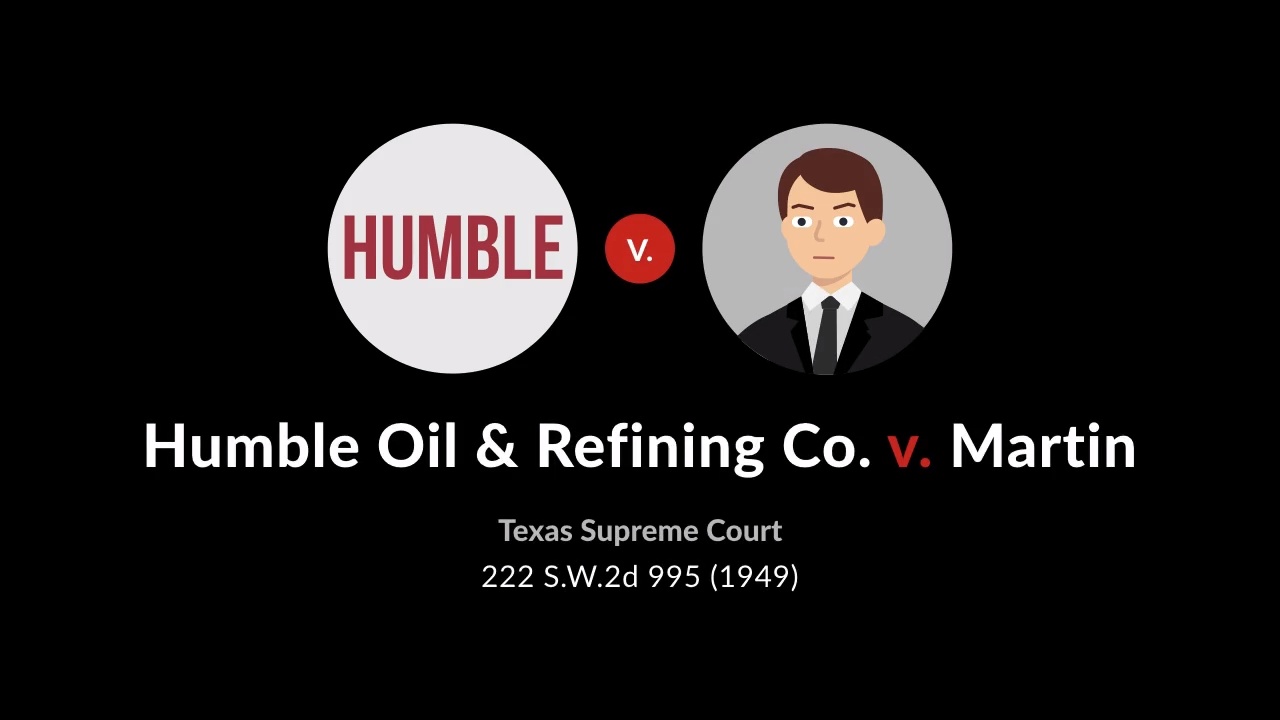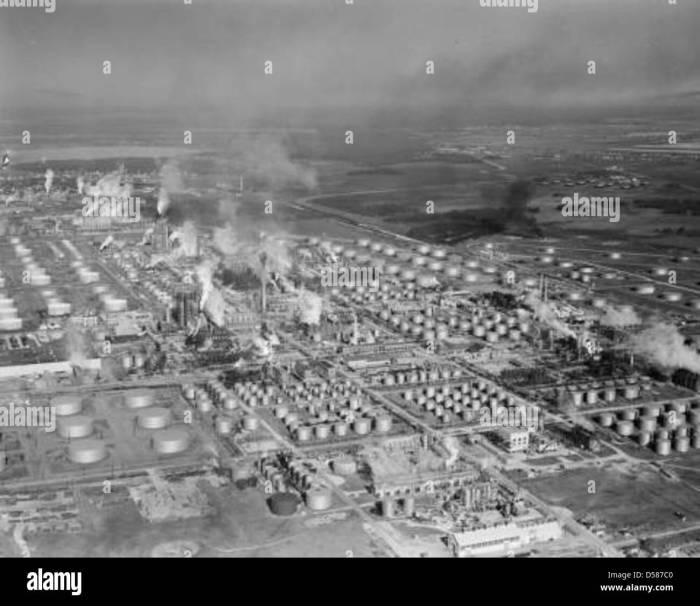Humble oil & refining company v. martin – Humble Oil & Refining Co. v. Martin, a pivotal case in the annals of oil and gas regulation, has left an indelible mark on the industry. This case study delves into the intricacies of the legal battle, examining the key issues, arguments, and rulings that shaped its outcome.
The dispute arose when Humble Oil & Refining Co. challenged the validity of a state regulation limiting the production of oil from its wells. The company argued that the regulation violated its property rights and exceeded the state’s authority.
Procedural History
The Humble Oil & Refining Company v. Martin case began in 1953 when the plaintiff, Humble Oil & Refining Company, filed a lawsuit against the defendant, W.H. Martin, in the United States District Court for the Eastern District of Texas.
The lawsuit alleged that Martin had breached a contract to sell oil and gas to Humble Oil & Refining Company.
The trial court ruled in favor of Humble Oil & Refining Company, finding that Martin had breached the contract. Martin appealed the decision to the United States Court of Appeals for the Fifth Circuit, which affirmed the trial court’s decision.
Legal Issues

The legal issues raised in the case included the interpretation of the contract between Humble Oil & Refining Company and Martin, the statute of frauds, and the doctrine of equitable estoppel.
Humble Oil & Refining Company argued that the contract was valid and enforceable, while Martin argued that the contract was unenforceable because it did not comply with the statute of frauds. Humble Oil & Refining Company also argued that Martin was estopped from asserting the statute of frauds because he had made representations to Humble Oil & Refining Company that he would sell the oil and gas.
Trial Court Decision

The trial court found that the contract was valid and enforceable and that Martin had breached the contract. The trial court also found that Martin was estopped from asserting the statute of frauds.
In reaching its decision, the trial court relied on the following reasoning:
- The contract was in writing and signed by both parties.
- The contract was for the sale of goods and therefore was not subject to the statute of frauds.
- Martin had made representations to Humble Oil & Refining Company that he would sell the oil and gas, and Humble Oil & Refining Company had relied on those representations.
Appellate Decision: Humble Oil & Refining Company V. Martin
The United States Court of Appeals for the Fifth Circuit affirmed the trial court’s decision. The appellate court agreed with the trial court’s reasoning and found that the contract was valid and enforceable and that Martin had breached the contract.
The appellate court also found that Martin was estopped from asserting the statute of frauds because he had made representations to Humble Oil & Refining Company that he would sell the oil and gas, and Humble Oil & Refining Company had relied on those representations.
Significance of the Case

The Humble Oil & Refining Company v. Martin case is a significant case in the law of oil and gas regulation. The case established the principle that contracts for the sale of oil and gas are not subject to the statute of frauds.
The case also established the principle that a party may be estopped from asserting the statute of frauds if they have made representations to another party that they will perform a contract, and the other party has relied on those representations.
FAQ Summary
What was the central issue in Humble Oil & Refining Co. v. Martin?
The central issue was whether a state regulation limiting oil production violated the company’s property rights.
What was the Supreme Court’s ruling in the case?
The Supreme Court upheld the state regulation, finding that it was a valid exercise of the state’s police power to protect natural resources.
What is the significance of the Humble Oil & Refining Co. v. Martin case?
The case established a precedent for balancing property rights with the need for effective resource management in the oil and gas industry.